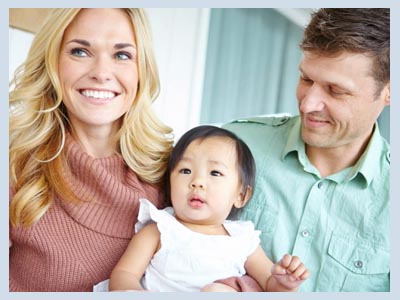Adoptive families are indeed different. Assuredly, they are not less-than nor second-best, but they are different from families created by birth. The National Consortium for Post Legal Adoption Services, with input from adoptive parents and professionals throughout the country, pinpointed eight areas of difference:
1. Mastery or Control – Family building through adoption is controlled by other people or circumstances outside an adoptive family’s control, thwarting most people’s efforts to maintain mastery over their environments and lives. Would-be parents are “studied” before they are “approved” for adoption, and agencies and courts have authority to determine the family’s destiny for a period of time.
2. Entitlement – Both legal entitlement, determined by the court’s consent to adoption, and emotional entitlement, which develops over time, impact the adoptive family’s belief in their “right” to each other.
3. Claiming – This process, which leads to adoptive family members’ full acceptance of one another, is complicated by older children’s remembrances of earlier families.
4. Unmatched Expectations – Often at the heart of the instability that some adoptive families experience, unmatched expectations need to be addressed and clarified, bringing about changes where needed.
5. Family Integration – Adoptive families are challenged by the complexities of blending past experiences — the child’s from biological and other family ties, and the adoptive family’s from times before adoption — into ways of functioning which serve the new family unit.
6. Separation, Loss, and Grief – The emotional losses of adoption have lifelong implications. An article in a NACAC publication describes the losses: [Adoption] is a profound experience in which every member of the triad has lost something, which makes adoption a unique phenomenon in our society. Birth parent has lost a child, whether termination of parental rights was voluntary or court-ordered. Child has lost his genetic family, his chance to “be just like everybody else…” And the adoptive family has lost the fantasy child that might have been born to them and who would carry a genetic link.
7. Attachment – Adoptive families need to incorporate their children’s past histories and experiences into solid new relationships of trust and positive interdependency, which directly affect how an individual views the world.
8. Identity Formation – The development of positive self-identities for both adoptive parents and adoptees is challenged by the unique circumstances of adoption, with an adoptee needing to incorporate the genetic connections to another family and the experiential connections to the adoptive family, and the adoptive parents incorporating a family member not genetically related to them.
Every adoptive family experiences and is affected by these differences. The issues the differences raise emerge and reemerge as all family members go through life’s developmental stages. Children who have experienced traumatic abuse, neglect, multiple placements and different caregivers bring additional issues, compounding the challenges faced by all adoptive families.
Clearly adoptive families cannot be expected to “go it alone.” They can benefit from, and must have available, a variety of services which are specific to their individual needs and circumstances and which are responsive to changing needs over time.
Therefore, the Coalition supports the development and implementation of a statewide system for the delivery of adoption support and preservation services. Family-centered, consumer-driven post adoption services provided by adoption-competent personnel must be available to all adoptive families residing in the state of New York, on a voluntary basis and at no cost to the families.
Source: Judith Ashton, former Executive Director, New York State Citizens’ Coalition for Children. Reprinted with permission of the author.

